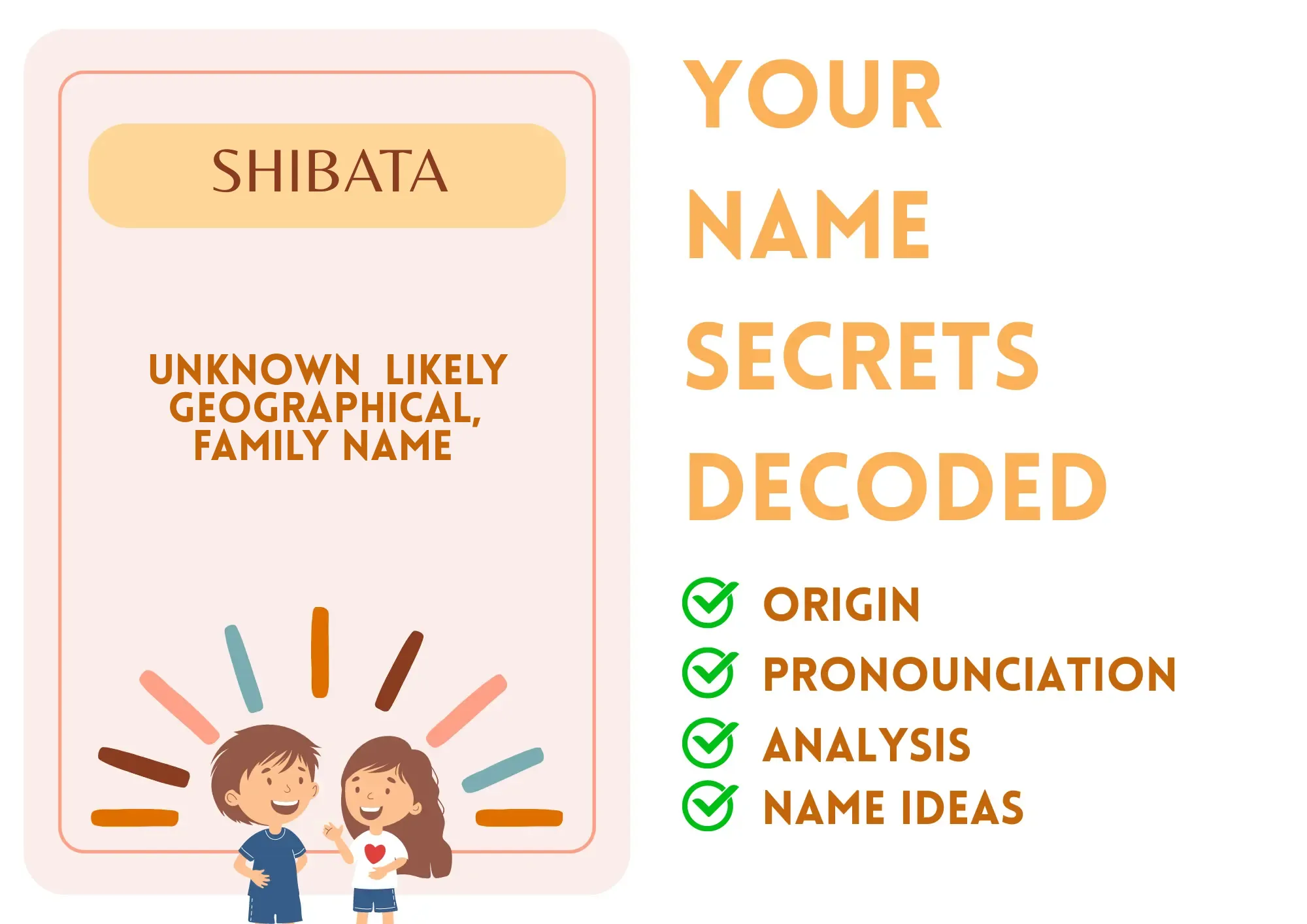
Shibata
Shibata is a notable and culturally rich name of Japanese origin. It is often associated with a geographical location, such as a city or a family name in Japan. The name is primarily masculine, but it can be used in unisex contexts. As a surname, it holds historical significance, often linked to samurai families and feudal lords, symbolizing strength and honor.
The name is perceived positively, often evoking feelings of heritage, strength, and cultural significance. It is fairly easy to write and pronounce, though it may present challenges for those unfamiliar with Japanese phonetics.
While not commonly found as a character name in popular culture, its roots in Japanese culture give it a unique standing. Overall, Shibata is appreciated for its connection to history and culture, making it a meaningful choice for parents.
Basic Information
Gender: Unisex
Sounds Like: shee-BAH-tah
Pronunciation Explanation: The name has three syllables: 'shee' as in 'she', emphasis on the second syllable 'BAH', and 'tah' as in 'ta'.
Summary and Meaning
Meaning: Unknown (likely geographical, family name)
Origin: The name Shibata has Japanese origins, primarily associated with regions, families, or historical samurai clans.
Usage: Shibata is predominantly used as a masculine name, but it has also been adopted unisex in some contexts.
Name Number (Chaldean)
Name Number (Pythagorean)
Religious and Cultural Significance
Religion: Shinto
Background: Shibata, reflecting cultural values in Japan, ties into Shinto beliefs, which often embrace nature, ancestors, and local deities.
Cultural Significance: The name carries historical weight in Japanese society due to its connections to ancient samurai families, emphasizing bravery and heritage.
Historical Significance: Shibata has historical significance largely as a surname tied to samurai clans, noble families, and geographic locations, representing a deep-rooted cultural history.
Popular Culture
Literature and Mythology: While specific characters named Shibata are not prevalent in global literature or mythology, the surname appears in various historical contexts.
Movies and Television: Shibata may reference characters or contexts in Japanese TV dramas and films, often carrying a connotation of tradition or strength, particularly in genres exploring historical narratives.
Feelings and Perceptions
Perception: People tend to view Shibata as a strong and culturally rich name. It often invokes a sense of respect for Japanese history and heritage.
Positive Feelings: Unique, strong, cultural, historical, dignified.
Negative Feelings: Might be challenging to pronounce for non-Japanese speakers, potentially unfamiliar to many.
Practical Considerations
Ease of Writing and Calling: Shibata is relatively easy to write and pronounce for those familiar with the Japanese language. It consists of three syllables, making it manageable to remember.
Common Typos and Misspellings: Shubata,Shibata,Shibta,Shibata
Common Nicknames: Shi,Bata
Compatibility Analysis
Famous Persons Named Shibata
Related Names
Similar Sounding Names:
Shikata,Shimoto,Shigeta
Similar Meaning and Related Names:
Sibling Name Ideas (Brothers):
Ren ♀️
Buddhist, Shinto (Japanese), Confucian (Korean)